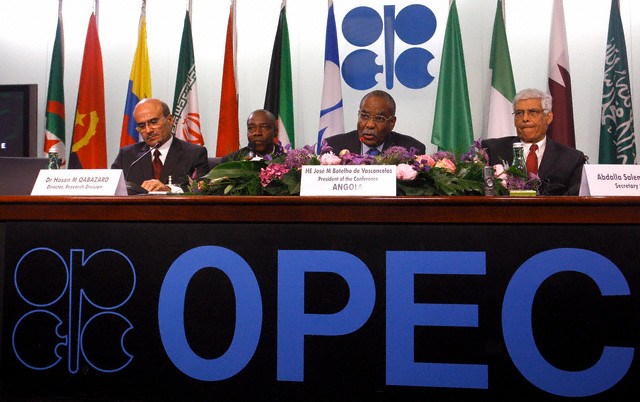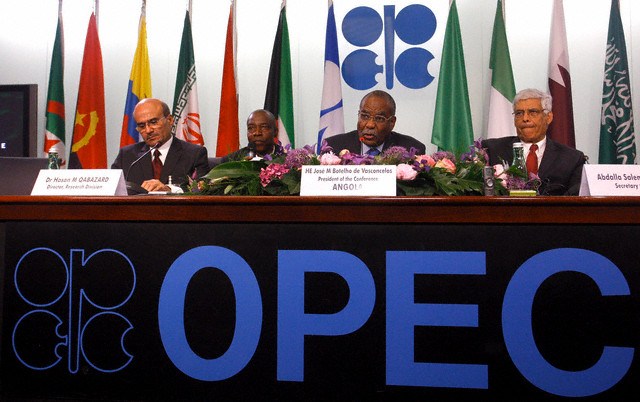
thespeaker.co, Day Donaldson
The meeting will be held in Algeria within the International Energy Forum in late September. At the same time, the bank experts are sure that the freeze as such would rather play against the OPEC countries, while other oil-producing states would benefit from it. The point is that non-OPEC countries would subsequently increase their oil revenues.
Besides, is does not necessarily mean that the freeze could support oil prices, and lead to their growth. If this does not happen, then the idea will result in failure. The bank believes that the best option would be resumption of a constructive dialogue, rather than the banal freeze.
In the latter case, it would be possible to achieve market balance. On the other hand, the freeze would easily fix the output at record levels.
By the way, it is believed that the spring meeting in Doha did not produce results precisely because Saudi Arabia decided to increase production first, and only then come to terms. In other words, the Saudis took a break.
On the other hand, not everyone at all thinks that the parties in Algeria will ever manage to agree. Other experts believe that Iran and Saudi Arabia will in every way try to maintain its market share, which would meet opposition from other market participants.
We also add that Goldman Sachs has maintained its forecast for oil prices in the range of $ 45-50 per barrel. A bit earlier, Moody's voted for the sharp rise in prices in the foreseeable future.
However, former president of the cartel and Algerian ex-Minister of Energy Chakib Khelil considers that the parties may agree to restrict oil production as raw materials have already reached maximum output levels.
In April, the deal fell through, but now most of the major OPEC producers, including Saudi Arabia, Iran, Iraq and Russia, extract the highest possible volume of oil, or are close to it.
"There are all the conditions for an agreement", - he said in an interview with Bloomberg agency.
Since oil producers are already operating almost at their peak capacities, any of the production freeze agreement will bear more "psychological" effect, he said. Nevertheless, the agreement would have a favorable impact on the world oil market.
At the same time, the cartel’s ex-head said that the global oversupply is already declining, and markets can achieve "full equilibrium" in the next year.
Another former head of OPEC and former Energy Minister of Qatar Abdullah bin Hamad al-Attiyah believes that a surplus of supply in amount of 1.2-1.5 million barrels per day is still present at the market. In his opinion, full restoration of balance would happen not earlier than the end of 2017.
He noted that it is "difficult to say" whether the OPEC countries and non-member states will reach any agreement on the output freeze.
The expert believes that another fruitless meeting "will cause more damage." "OPEC and non-OPEC countries must be very careful in holding a new meeting without proper consent and training", - he said.
Meanwhile, Iranian Oil Minister Bijan Namdar Zanganeh has not yet decided on his plans, and is not even sure whether he could make it to the Algerian meeting, said the ministry’s spokesman to Bloomberg.
It should be noted that forecasts of various investment houses and rating agencies rarely coincide with the real state of affairs, so that it is not necessary to pay special attention to them.
source: bloomberg.com
Besides, is does not necessarily mean that the freeze could support oil prices, and lead to their growth. If this does not happen, then the idea will result in failure. The bank believes that the best option would be resumption of a constructive dialogue, rather than the banal freeze.
In the latter case, it would be possible to achieve market balance. On the other hand, the freeze would easily fix the output at record levels.
By the way, it is believed that the spring meeting in Doha did not produce results precisely because Saudi Arabia decided to increase production first, and only then come to terms. In other words, the Saudis took a break.
On the other hand, not everyone at all thinks that the parties in Algeria will ever manage to agree. Other experts believe that Iran and Saudi Arabia will in every way try to maintain its market share, which would meet opposition from other market participants.
We also add that Goldman Sachs has maintained its forecast for oil prices in the range of $ 45-50 per barrel. A bit earlier, Moody's voted for the sharp rise in prices in the foreseeable future.
However, former president of the cartel and Algerian ex-Minister of Energy Chakib Khelil considers that the parties may agree to restrict oil production as raw materials have already reached maximum output levels.
In April, the deal fell through, but now most of the major OPEC producers, including Saudi Arabia, Iran, Iraq and Russia, extract the highest possible volume of oil, or are close to it.
"There are all the conditions for an agreement", - he said in an interview with Bloomberg agency.
Since oil producers are already operating almost at their peak capacities, any of the production freeze agreement will bear more "psychological" effect, he said. Nevertheless, the agreement would have a favorable impact on the world oil market.
At the same time, the cartel’s ex-head said that the global oversupply is already declining, and markets can achieve "full equilibrium" in the next year.
Another former head of OPEC and former Energy Minister of Qatar Abdullah bin Hamad al-Attiyah believes that a surplus of supply in amount of 1.2-1.5 million barrels per day is still present at the market. In his opinion, full restoration of balance would happen not earlier than the end of 2017.
He noted that it is "difficult to say" whether the OPEC countries and non-member states will reach any agreement on the output freeze.
The expert believes that another fruitless meeting "will cause more damage." "OPEC and non-OPEC countries must be very careful in holding a new meeting without proper consent and training", - he said.
Meanwhile, Iranian Oil Minister Bijan Namdar Zanganeh has not yet decided on his plans, and is not even sure whether he could make it to the Algerian meeting, said the ministry’s spokesman to Bloomberg.
It should be noted that forecasts of various investment houses and rating agencies rarely coincide with the real state of affairs, so that it is not necessary to pay special attention to them.
source: bloomberg.com


















